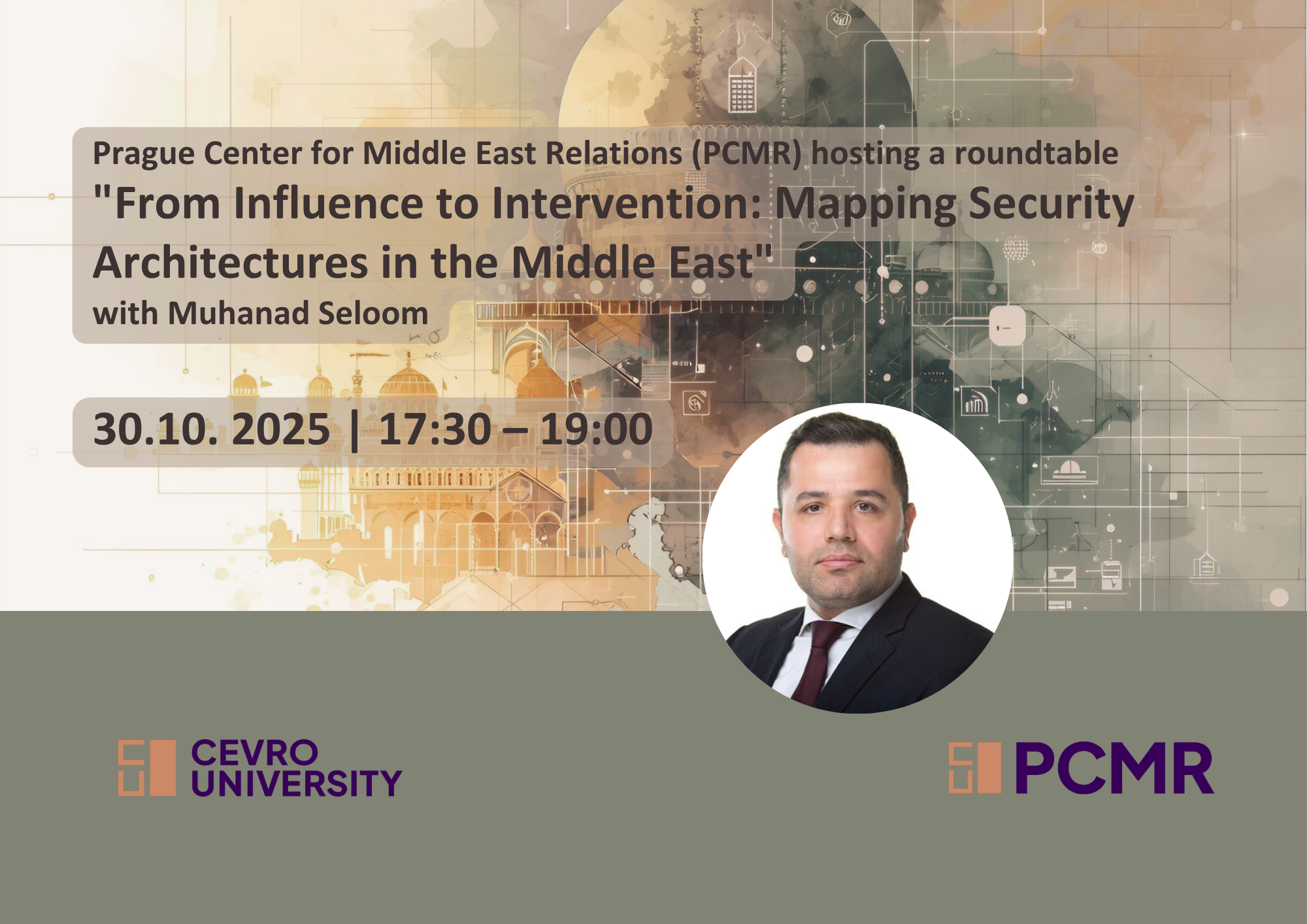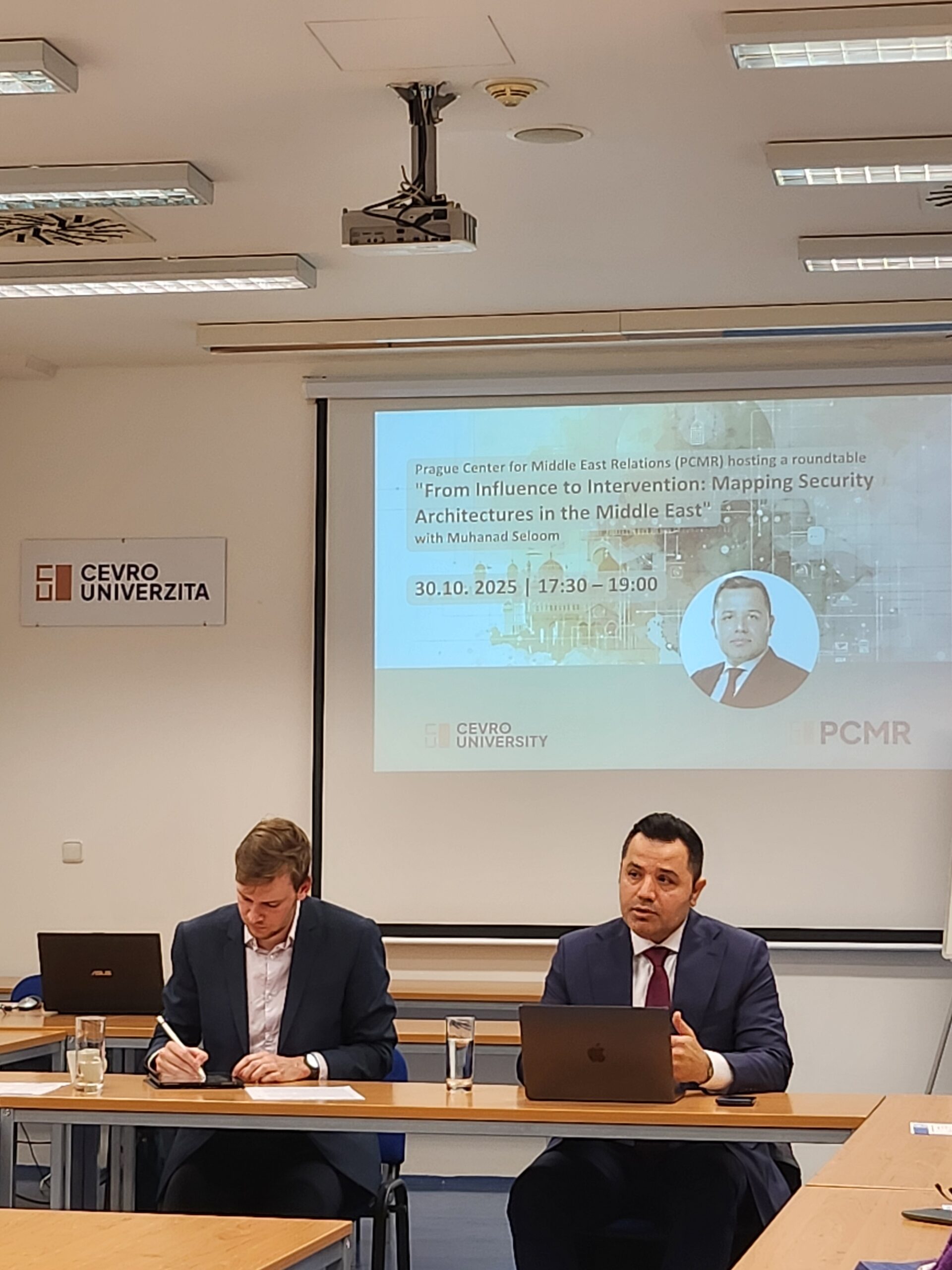Roundtable “From Influence to Intervention: Mapping Security Architectures in the Middle East”
Date of publication: November 3, 2025

On October 30, 2025, the Prague Center for Middle East Relations (PCMR) at CEVRO University organized a closed roundtable discussion “From Influence to Intervention: Mapping Security Architectures in the Middle East” with Muhanad Seloom, Assistant Professor of Critical Security Studies at the Doha Institute for Graduate Studies and Honorary Research Fellow at the University of Exeter (UK).
The debate was moderated by Filip Sommer, Director of PCMR. The event was held under Chatham House Rules.
During this roundtable discussion, we focused on analyzing the strategic recalibration of Iran’s domestic and foreign policy after the 12-day war with Israel (June 2025), in which Tehran prioritizes the survival of the regime, restores domestic capacities, and reorganizes the weakened Axis of Resistance, while deepening strategic ties with Russia and China. Iran is thus currently focusing on rebuilding its internal capacities and preparing for another clash with Israel. At the same time, it is trying to revive the remnants of the Axis of Resistance, in particular to resurrect Hezbollah, maintain unified pro-Iranian Iraqi paramilitary forces (ahead of the Iraqi parliamentary elections), and support the Houthis’ efforts. Iran is then trying to respond to renewed sanctions by the US and the UN and is orienting itself even more towards Russia and China – diplomatically, economically, and militarily.
The discussion then focused on the post-war settlement in the Gaza Strip and an assessment of the state of the ceasefire between Israel and Hamas on October 9, 2025. We also discussed its impact on Israeli-Palestinian relations, the future administration of the Gaza Strip, and broader regional implications (such as the involvement of Turkey and the Arab Peninsula states in the possible reconstruction of the Gaza Strip). Special attention was also paid to Egypt, Qatar, and the United States in shaping security measures on this issue.
In conclusion, Dr. Seloom focused on developments in the security situation in Syria, particularly Damascus’s approach to Israel. He discussed the emerging dynamics along the Syrian-Israeli border, potential areas of quiet coordination, and how these events could reshape the broader regional security landscape.
Speaker’s Bio
Dr Muhanad Seloom is an Assistant Professor of Critical Security Studies at the Doha Institute for Graduate Studies and an Honorary Research Fellow at the University of Exeter (UK). He is the author of Labelling Ethno-Political Groups as Terrorists: The Case of the PKK in Türkiye (Routledge, 2025) and is completing The History and Politics of Iraqi Intelligence, 1915–2025 (under review with Cambridge University Press). His research and teaching span international and national security, intelligence studies, military strategy, and counterterrorism.
Dr Seloom’s expertise is frequently sought by leading international media, including BBC, The Economist, Al Jazeera, TRT World, and Al-Araby TV. He also serves as Associate Editor of the Strategic Studies and Political Research Journal (University of Tlemcen) and regularly shares commentary on intelligence, strategy, and security policy (@MuhanadSeloom).


